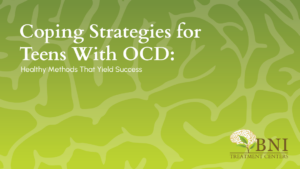Teen girls struggle with a mental health disorder, especially mood disorders, at double the rate as boys, according to the Anxiety and Depression Association of America. Teenage girl mental illness tends to appear most in depressive disorders, anxiety, eating disorders, and self-harming behaviors. Other types of mental illness, such as borderline personality disorder and bipolar disorder, are also more prevalent among girls than boys.
Having a basic understanding of the more common mental health disorders that occur among adolescent girls can help guide the family towards appropriate treatment and management of the condition. The sooner the teenage girl mental illness symptoms are addressed, the more effective treatment will be at minimizing the disorder before adulthood, at which point the disorder could become more entrenched and impairing.
Most Common Teenage Girl Mental Illnesses
Depression
When a teenage girl experiences depression, it may be difficult to recognize her symptoms as such. Many parents assume that mood swings are the result of hormones and typical teen strife. However, when a cluster of symptoms persists most of the time for over two weeks it is wise to have the teen evaluated by a physician. Teen depression is never to be taken lightly, especially with teen suicide rates spiking in recent years. Substance abuse, declining academic performance, poor school attendance, and interpersonal problems will likely escalate if the depression is not addressed and managed by a mental health provider.
Symptoms of teen depression include:
- Sadness or low mood
- Changes in eating habits, sudden weight loss or gain
- Changes in sleeping patterns, excessive sleeping or insomnia
- Lack of interest in the activities she normally enjoys
- Low energy, fatigue
- Trouble concentrating, declining academic performance
- Expressing feelings of hopelessness and despair
- Slowed motor and cognitive functioning
- Talks often about death or suicide
Anxiety
Anxiety is common among teen girls. This age range presents many sources of anxiety, particularly around their self-image. Anxiety can become so difficult to endure that the teen girl will begin to adapt to it, such as isolating herself to avoid social triggers and intense fear of being judged. Anxiety becomes impairing when the teen suffers socially, academically, and emotionally. Timely treatment of the anxiety will help curb these isolating behaviors brought on by irrational worry and fear.
Symptoms of teen anxiety include:
- Being on edge, restless
- Irritability
- Muscle tension, headaches, stomachaches
- Insomnia
- Difficulty concentrating
- Withdrawing from friends and social events
Eating Disorders
Eating disorders among adolescent girls afflicts more than double the number of boys, according to the National Institute of Mental Health. Eating disorders can develop as a response to body dysmorphia, or distortions in how they view their body. Bullying and body shaming can spark an eating disorder, as can a sense of being out of control, where the teen girl feels that her weight is the only thing she can control. Social media is thought to play a possible role in teen girls developing an eating disorder, with unattainable views of physical perfection inspiring distorted eating habits.
Symptoms of teen eating disorders include:
- Being preoccupied with their weight or shape
- Becomes a picky eater
- Overeating when stressed or upset
- Skips meals
- Immediately goes into bathroom following meal
- Abuses laxatives or diuretics
- Excessive exercising
- Obsessed with looking at themselves in mirrors
- Hiding food in their bedroom
- Dramatic loss of weight
- Irregular menstrual cycles
Treatment For Teen Girls With Mental Health Disorders
Treatment for teen mental health issues will depend on the specific diagnosis, as each disorder will have unique features that will dictate the course of treatment. In most cases, teen mental illness is treated with psychotherapy, both individual and group formats. The type of therapy will be selected based on the disorder, but common types of therapy for teens include:
- Cognitive behavioral therapy
- Interpersonal therapy
- Solutions focused therapy
- Psychodynamic therapy
- Mindfulness-based CBT
In some cases, medications will be prescribed, such as antidepressants or anti-anxiety medications. These must be closely monitored, as some antidepressants can prompt suicidal thoughts or actions in individuals under aged 24, and benzodiazepines, or anti-anxiety drugs, are highly addictive and can be abused.
Teen girls also benefit from incorporating journaling, art therapy, equine therapy, yoga, and mindfulness meditation into the mental health treatment plan. These foster relaxation and reduce stress, and can be very therapeutic for teens experiencing psychological or emotional distress.
BNI Treatment Centers Treats Teenage Girl Mental Illness Los Angeles
BNI Treatment Centers is a residential mental health program designed for teens ages 12-17. Teen girls who struggle with depression, anxiety, eating disorders, personality disorders, and mood disorders such as bipolar disorder often need more focused and individualized interventions. A residential program like BNI Treatment will provide the safe, supportive space for girls to work on their mental health issues without other distractions or triggers interfering. The program caters to the interests of teens by offering a wide array of experience-based treatments that compliment the traditional psychotherapy. For more information about how we can help your teen, please reach out to BNI Treatment Centers, a teen treatment center, today at (888) 522-1504.



